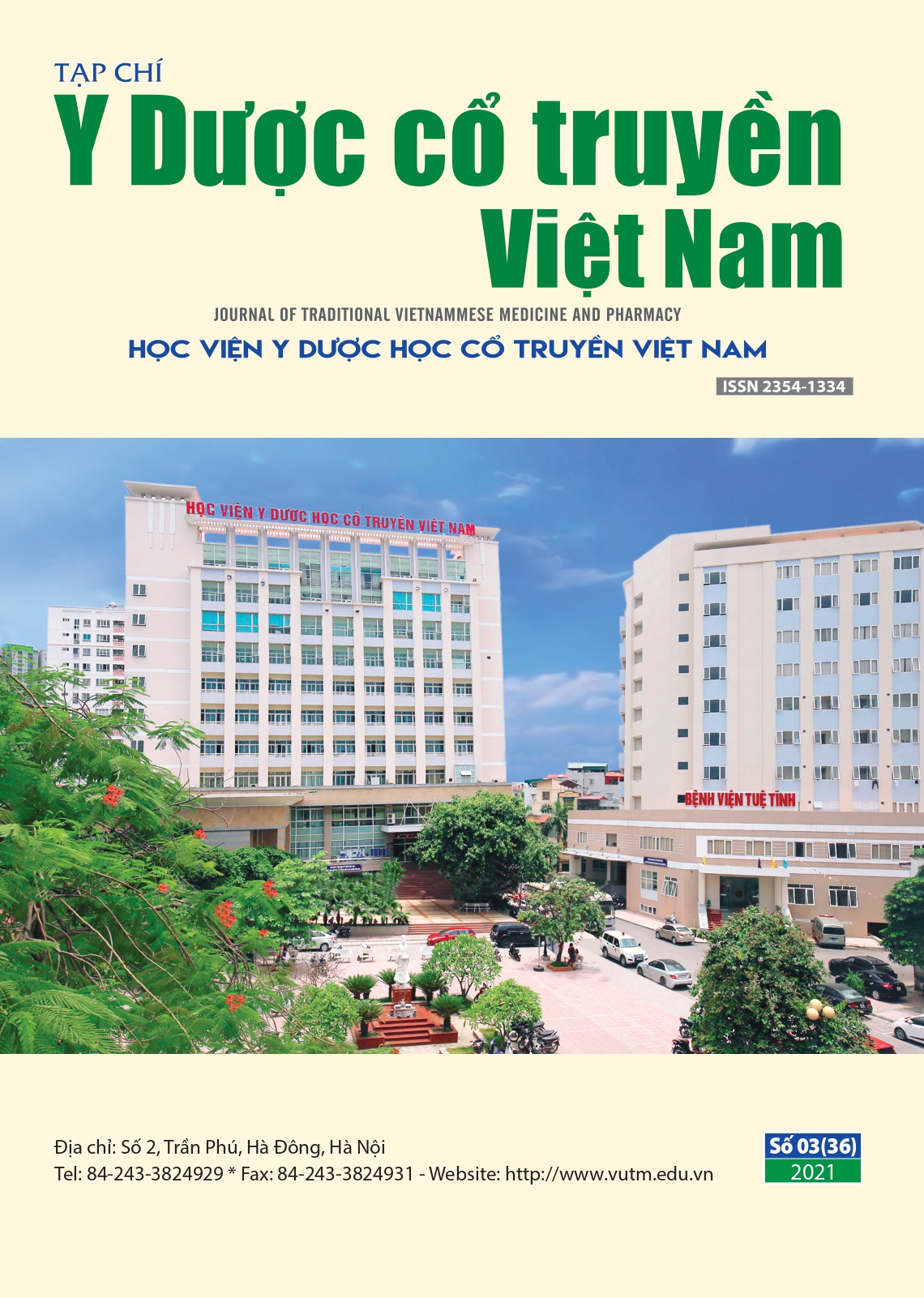Nghiên cứu tác dụng xua muỗi Aedes aegypti của dịch chiết húng quế Ocimum basilicum L. Lamiaceae trên thực nghiệm
Nội dung chính của bài viết
Tóm tắt
Nghiên cứu được tiến hành từ tháng 06 đến tháng 8 năm 2020, tại Viện Sốt rét - Ký sinh trùng - Côn trùng Trung ương.
Mục tiêu: Thử tác dụng xua muỗi Aedes aegypti của dịch chiết nước Húng quế (Ocimum basilicum L. Lamiaceae) trên động vật thí nghiệm.
Phương pháp nghiên cứu: Tiến hành thử tác dụng xua muỗi theo phương pháp của Tổ chức Y tế thế giới (WHO), với mồi là chuột lang. Chín trăm (900) muỗi Aedes aegypti được chia thành 9 lô, mỗi lô 100 con; trong đó có 3 lô chứng (muỗi được nhốt trong ống tunnel với màn không tẩm dịch thử), 3 lô thử với dịch chiết húng quế nồng độ 100 g/100 mL và 3 lô thử với dịch chiết húng quế nồng độ 200 g/100 mL. Đánh giá tỷ lệ muỗi chết và tỷ lệ muỗi bị ức chế hút máu ở các lô chứng và lô thử nghiệm sau 15 giờ tiếp xúc với màn tẩm dịch thử.
Kết quả: Dịch chiết húng quế ở các nồng độ 100 g/100 mL và 200 g/100 mL có tác dụng xua trung bình lần lượt là 62,71% và 76,12% muỗi Aedes aegypti.
Chi tiết bài viết
Từ khóa
Húng quế, Ocimum basilicum L. Lamiaceae, muỗi Aedes aegypti, dịch chiết nước, tác dụng xua, tỷ lệ chết, tỷ lệ ức chế hút máu.
Tài liệu tham khảo
2. EPA (2018), “General Information about Mosquitoes”, United States Environmental Protection Agency.
3. Camila Martins Güez, Raul Oliveira de Souza, Paula Fischer et al (2017), “Evaluation of basil extract (Ocimum basilicum L.) on oXidative, antigenotoXic and anti-inflammatory effects in human leukocytes cell cultures exposed to challenging agents”, Brazilian Journal of Pharmaceutical Sciences, 53(1), 12 pages.
4. D. Lupton, M. Mumtaz Khan, R.A. Al-Yahyai, M. Asif Hanif (2016), “Basil: A natrural source of antioXidants and neutraceuticals”, chapter 3, Leafy Medicinal Herbs: Botany, Chemistry, Postharvest Technology and Uses, p. 27-41.
5. G. Opalchenova, D. Obreshkova (2003), “Comparative studies on the activity of basil - an essential oil from Ocimum basilicum L. - against multidrug resistant clinical isolates of the of genera Staphylococcus, Enterococcus, and Pseudomonas by using different test methods”, Journal of Microbiological methods, Volume 54, Issue 1, p. 105-110.
6. Science direct (2019), “Mosquito – an overview”, Science direct, 12 pages.

